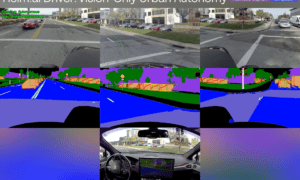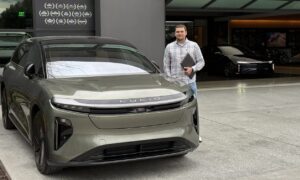In the ever-evolving landscape of the automotive industry, advanced automobile technology has revolutionized the way we perceive transportation. With a growing awareness of environmental concerns and a desire for cleaner, more sustainable options, electric vehicles (EVs) have emerged as a prominent player. This article explores the remarkable advancements in automobile technology that have paved the way for the rise of electric vehicles. From cutting-edge battery technologies to smart charging infrastructure and autonomous driving capabilities, the automotive world is experiencing a seismic shift towards a cleaner, more efficient future.
Introduction
The Transition to Electric Power
The transition from traditional internal combustion engines to electric power represents a paradigm shift in the automotive industry. The driving force behind this transformation is the urgent need to reduce greenhouse gas emissions and combat climate change. Electric vehicles, powered by batteries and electric motors, offer an eco-friendly alternative to their fossil fuel counterparts. But what has enabled this transition to electric power on such a large scale?
Battery Technology Advancements
The heart of every electric vehicle is its battery. Over the past few decades, extensive research and development have yielded remarkable improvements in battery technology. Lithium-ion batteries, in particular, have become the backbone of electric vehicle power sources due to their high energy density and relatively light weight.
In recent years, advancements in battery technology have led to greater energy storage capacities, faster charging times, and increased overall lifespan. Electric vehicle manufacturers are continuously pushing the boundaries of battery innovation, making EVs more accessible and efficient than ever before.
Charging Infrastructure
For electric vehicles to be a practical choice for consumers, an extensive charging infrastructure is essential. Fortunately, governments and private enterprises have recognized the importance of this infrastructure and have been investing heavily in its development. Charging stations are becoming increasingly common in urban areas and along highways, eliminating the range anxiety that once plagued potential EV buyers.
Additionally, rapid charging technology has made it possible to charge an EV to 80% capacity in just 30 minutes or less. This convenience is a game-changer for drivers who might have hesitated to switch to electric power due to concerns about long charging times.
Cost Reduction
One of the primary barriers to electric vehicle adoption has historically been their high upfront cost. However, significant advancements in manufacturing processes and economies of scale have led to substantial cost reductions. Moreover, many governments offer incentives and subsidies to promote electric vehicle adoption, further narrowing the price gap between traditional and electric vehicles.
A cleaner, more sustainable future is within reach, thanks to these technological advancements. But electric vehicles offer more than just environmental benefits. They come with a host of other features that make them a compelling choice.
Innovative Features of Electric Vehicles
Efficiency and Performance
Electric vehicles are known for their remarkable efficiency. Unlike internal combustion engines, which waste a significant portion of their energy as heat, electric motors convert a higher percentage of their energy into motion. This results in a smoother and more powerful driving experience.
Electric vehicles are also known for their instant torque, meaning they can accelerate rapidly and smoothly. Many EVs can outperform traditional sports cars in terms of acceleration, demonstrating that going electric doesn’t mean compromising on performance.
Low Maintenance
Electric vehicles are simpler in design compared to their fossil fuel-powered counterparts. They have fewer moving parts, which translates to reduced maintenance requirements. There’s no need for oil changes or complex transmission systems. This not only saves money for consumers but also reduces the environmental impact of vehicle maintenance.
Quiet and Comfortable
Electric vehicles are quieter than traditional vehicles because they lack the rumbling engine noise. This makes for a more peaceful and comfortable driving experience. Noise pollution is reduced in urban areas, and passengers can enjoy a quieter cabin.
Smart Features
Many electric vehicles are equipped with advanced technology features. For instance, Tesla’s Autopilot system offers a taste of autonomous driving. The vehicle can handle tasks like adaptive cruise control, lane centering, and even navigate highways with minimal input from the driver.
Furthermore, electric vehicles often come with sophisticated infotainment systems, smartphone integration, and over-the-air software updates that continually enhance vehicle performance and features.
The Future of Automobile Technology
As electric vehicles continue to gain prominence, the future of automobile technology holds even more exciting possibilities. Let’s explore some of the upcoming advancements that are set to transform the automotive landscape.
Autonomous Driving
The concept of self-driving cars is no longer science fiction. Automakers and tech giants are racing to develop autonomous driving systems that will redefine how we interact with our vehicles. While fully autonomous cars are still in the testing phase, advanced driver-assistance systems (ADAS) are already making our roads safer and more convenient.
Alternative Fuel Sources
While electric vehicles are at the forefront of clean transportation, other alternative fuel sources are emerging. Hydrogen fuel cell vehicles, for example, use hydrogen to generate electricity, emitting only water vapor as a byproduct. These vehicles are already on the market and could become more widespread as the hydrogen infrastructure develops.
Lighter Materials
In the quest for greater efficiency and reduced environmental impact, automakers are exploring lighter materials, such as carbon fiber and aluminum, to construct vehicles. Lighter cars consume less energy, resulting in improved range and efficiency.
Connectivity and Smart Cities
As vehicles become more connected, they will play a significant role in the development of smart cities. Cars will communicate with traffic management systems, other vehicles, and even pedestrians, enhancing safety and traffic flow. The concept of Mobility as a Service (MaaS) is set to transform the way we access transportation services, allowing for seamless integration of various modes of transit.
Conclusion
The rise of electric vehicles and the advancements in automobile technology are setting the stage for a cleaner, more efficient, and technologically advanced future of transportation. With improvements in battery technology, charging infrastructure, and a reduction in costs, electric vehicles are becoming a practical and attractive choice for consumers.
Beyond environmental benefits, electric vehicles offer superior efficiency, low maintenance requirements, and innovative features that enhance the driving experience. The future holds even more promise with the development of autonomous driving, alternative fuel sources, lighter materials, and the integration of vehicles into smart cities.

































